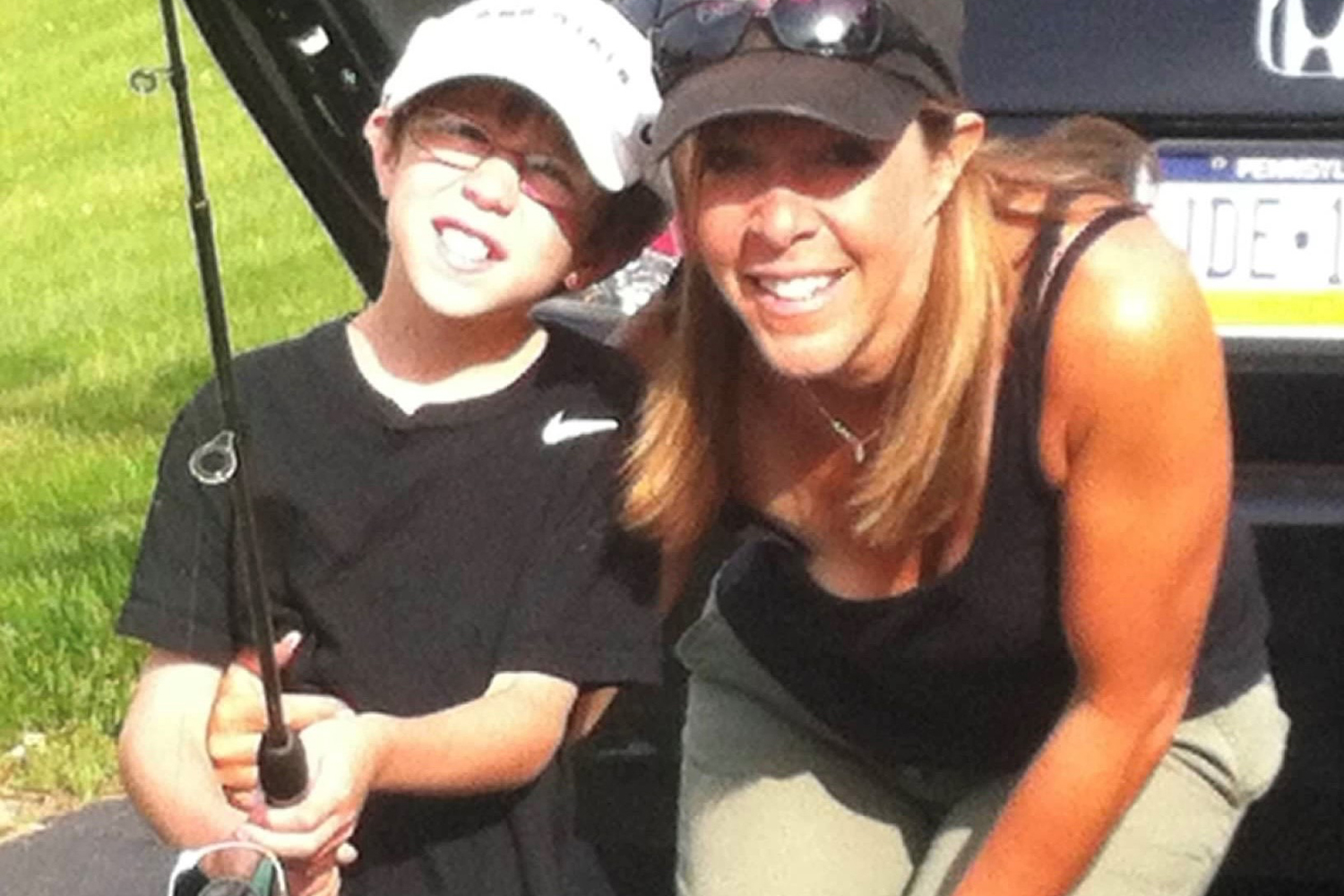SANDY McHUGH REMEMBERS HER SON Jake for his “amazing, creative little mind.” The mom from Collegeville, Pennsylvania, fondly recalls how he channeled that creativity into building projects, whether he was using Legos to re-create something he saw at a museum or inventing new structures with tree branches in the backyard.
Despite his seemingly endless creativity, Jake struggled academically. As a toddler, he started to walk and talk later than typical, and at age 10, doctors discovered he had a growth hormone deficiency. He was diagnosed with autism spectrum disorder and experienced attention-deficit/hyperactivity disorder. When he struggled in public school, McHugh quickly learned to advocate for her child’s education, eventually moving Jake to a private school for students with learning disabilities where he thrived, she says.
McHugh soon had to apply the advocacy skills she’d learned in a new setting as Jake, the youngest of her three children, faced a fatal cancer diagnosis. Years later, she continues to advocate for the pediatric cancer community through a nonprofit created in his memory.
A Rare Cancer Diagnosis
In the summer of 2017, Jake, then 13, began complaining about shoulder pain. He became sick and started vomiting. Doctors initially didn’t see anything wrong and sent the family home, but then a radiologist reviewed X-ray images and found a mass growing in Jake’s chest near his windpipe. On Aug. 11, doctors diagnosed him with stage II peripheral T-cell lymphoma, an aggressive form of blood cancer that is rare in adults and even rarer in children.
As McHugh and her husband, Matt, faced the reality of their son’s diagnosis, they also worried about how Jake would react. “It’s intimidating for any child, let alone a child that’s already coming [in] with anxieties and things from their [autism] diagnosis,” she says. McHugh pulled every provider aside to explain Jake’s autism and caution them to not exacerbate his anxiety.
Read how people with developmental disabilities, such as autism, can face obstacles to receiving appropriate cancer screening and treatment.
Doctors immediately started Jake on a standard chemotherapy regimen. “He was amazing and resilient about it,” McHugh says, attributing much of that resilience to his love of dragons. A fan of films like How to Train Your Dragon and Pete’s Dragon, Jake always carried around stuffed dragons as a young child, McHugh recalls. During treatment, he built Lego dragons and kept them by his hospital bed. “They were his comfort,” McHugh says.
That December, Jake celebrated his 14th birthday at Nemours Children’s Hospital in Wilmington, Delaware. When his cancer stopped responding to chemotherapy in January 2018, his doctors consulted with 10 top pediatric oncologists across the country and decided to try the immunotherapy drug Keytruda (pembrolizumab) in combination with chemotherapy. But the mass in Jake’s chest continued to grow.
Results of a small phase I clinical trial published that month in the journal Blood found adults with peripheral T-cell lymphoma had responded to the combination of Istodax (romidepsin) and the chemotherapy Folotyn (pralatrexate), so Jake’s doctors decided to give it a try. But first, he had to receive radiation at a different hospital to shrink the tumor. With Jake on a ventilator, transportation proved difficult. As their son’s condition deteriorated and traveling became nearly impossible, the McHughs discontinued treatment, and Jake died Feb. 9, 2018.
A New Purpose
Throughout Jake’s treatment, friends and neighbors assisted the family wherever possible, McHugh recalls. “People just came out of the woodwork and helped us,” she says, noting they provided gift cards and help around the McHughs’ house. After Jake’s death, McHugh wanted to pay that kindness forward.
During Jake’s time in the hospital, McHugh had seen the financial burden that families facing a pediatric cancer diagnosis often endure, as well as the importance of research. “When stuff like this happens, I feel like the best way to survive is to immerse yourself in helping the people who come next,” she says, referring to other families facing a child’s cancer diagnosis.
In August 2018, McHugh and her husband launched Jake’s Dragon Foundation. A member of the American Childhood Cancer Organization, the nonprofit raises money through an annual push-up challenge, a 5K race and a casino night gala, along with smaller events throughout the year. To date, the group has raised more than $200,000.
Those funds go to programs that support pediatric cancer patients and research. On Jake’s birthday every December, the organization gives a stuffed dragon and a gift card to each cancer patient at Nemours. The foundation also provides financial assistance for families, such as helping pay for transportation. Additionally, the nonprofit funds a genetic counselor at Nemours and is raising money for the hospital’s new Lisa Dean Moseley Foundation Institute for Cancer and Blood Disorders, which is slated to open in spring 2025.
McHugh also has advocated for research funding. In 2019, she testified before the Pennsylvania state legislature to support allocating $10 million per year to pediatric cancer research. “I’m doing something to make it better, even if it’s just a little piece,” she says.
McHugh says Jake’s Dragon Foundation has given her a way to make good come from her youngest child’s cancer journey. “It makes me feel like I’m still fighting for somebody,” she says. “If I can’t fight for him, I gotta help somebody else.”
Cancer Today magazine is free to cancer patients, survivors and caregivers who live in the U.S. Subscribe here to receive four issues per year.





